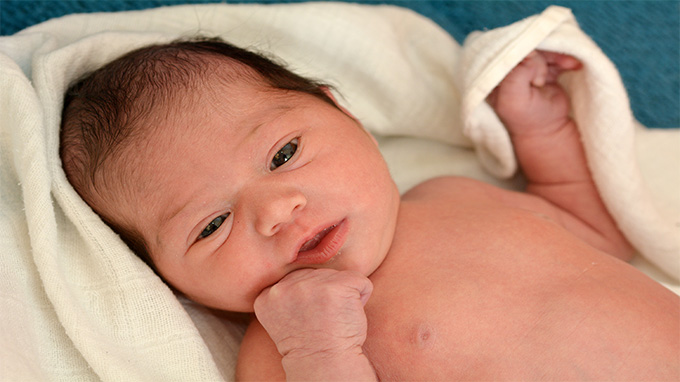Poop is too stinky, three main reasons
Almost everyone''s bowel movements are stinky, but if the bowel movements are too stinky, the smell is unheard, and the smell is diffuse, it is abnormal. There are many reasons for this situation, but the substances that eventually cause fecal odor are not complicated. It is nothing more than amines, indole, hydrogen sulfide, and stinking scat. They mainly come from the decomposition of undigested and absorbed food components in the intestinal flora, especially proteins or other sulfur-containing substances. Anything that causes a significant increase in protein or other sulfur-containing substances in the large intestine can cause feces to be too stinky.
1. High protein intake in diet
The high protein foods we eat daily, such as fish, meat, eggs, milk, and soy, contain a small amount of protein that cannot be The small intestine is digested and absorbed, so it enters the large intestine and is decomposed and utilized by bacteria in the large intestine (physiologically called "spoilage"), and produces odorous components such as amines, indole, and hydrogen sulfide. If you eat a high-protein diet, a large amount of unabsorbed protein will enter the large intestine, the spoilage effect is "vigorous", and the smell will bloom.
It should be emphasized that proteins derived from meat, eggs and other foods contain more sulfur elements (sulfur-containing amino acids), the content of which is much higher than that of soybean products, and sulfur elements spoil in the large intestine bacteria. Hydrogen sulfide will be generated during the action, and hydrogen sulfide is extremely smelly, so if you eat more meat or eggs, it will be more smelly.
It is worth noting that although vegetables such as garlic, onions, radishes are not high-protein foods, they also contain more sulfur (sulfide), which will also be converted into hydrogen sulfide under the action of coliform bacteria. Make feces smelly. Therefore, vegetarianism sometimes does not prevent the feces from becoming too smelly.
2. Poor digestion and absorption
In the elderly, indigestion, stomach acid deficiency, etc., the digestive and absorptive capacity decreases, and many of the proteins in the normal diet are not absorbed and enter The large intestine makes the feces smelly under the action of bacterial spoilage.
Lactose intolerance is another common cause. Some people lack lactase in the small intestine and cannot digest lactose after ingesting milk. On the one hand, lactose is fermented by bacteria after entering the large intestine, producing gas (a lot of fart) and odor (not malodor); on the other hand, it also shortens the residence time of milk proteins in the small intestine, so that some proteins and their digestion products are not fully absorbed , Entering the large intestine makes the feces more smelly under the action of bacterial spoilage.
3. Intestinal diseases
Bacterial enteritis (mostly accompanied by obvious diarrhea) The stools often have a fishy smell; Crohn''s disease of the intestine (an unexplained intestinal tract) Inflammatory disease), ulcerative colitis and other diseases will make the stool more smelly. This aspect is related to the inability of food to be digested and absorbed normally. On the other hand, it is also related to the imbalance of intestinal flora.
Because most of the odorous substances in feces are produced under the action of intestinal flora, what kind of intestinal flora is spoilage (very stinky or stench) or fermentation? (Not smelly or sour) Strong, are directly related to the smell of stool.
No matter how, from the perspective of the balance of intestinal flora, it is better not to smell too much.
Related Articles

- What are the symptoms of Crohn's disease?
- 2020-12-17

- Teach you a few tricks to deal with your child's jaundice
- In the clinic, we found that half of the newborn babies will become yellow (60% full term infants, 80% premature infants). Such children are usually diagnosed as neonatal jaundice. The reas
- 2020-08-02

- Why Chinese mothers breastfeeding rate is not high
- Today, the proportion of Chinese mothers who breastfeed exclusively is not high. Information shows that the proportion of Chinese mothers who are "breastfeeding" is 52.4%; followed
- 2020-08-02

- Breastfeeding children are more adaptable to the outside world
- Breastfeeding has many benefits. The latest research shows that breastfeeding children are more adaptable to the outside world. Studies have shown that breastfeeding children aged 0 to 1 y
- 2020-08-02

- Breastfeeding is good for mothers
- Everyone knows the benefits of breastfeeding, and has repeatedly emphasized that 4-6 months of exclusive breastfeeding is enough. However, according to surveys, breastfeeding rates in China
- 2020-08-02

- Baby grow up, how to add food supplement
- Xiaobao is 7 months old. The baby''s grandma said that it is time to add supplementary food to the baby. This morning, Grandma carefully steamed the eggs for her grandson. She told
- 2020-08-01
